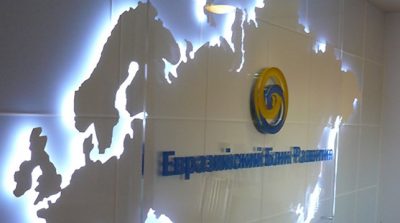“Naya Pakistan”: New Pakistan Should Apply to Join the Eurasian Development Bank

Note to readers: please click the share buttons above
The “Naya Pakistan” (New Pakistan) of Prime Minister-elect Imran Khan should build upon the foreign policy rebalancing of the previous administrations and apply to join the Russian-led Eurasian Development Bank.
Pakistan is on the cusp of such major changes following last month’s elections that many have begun speaking about a “Naya Pakistan” (New Pakistan) under the leadership of Prime Minister-elect Imran Khan, one which would naturally differentiate itself in the foreign policy realm just as much as the domestic one. Recognizing that this represents an exciting moment for Pakistan to build off of the regional rebalancing strategy begun by the previous administrations and take these moves to their next level, it’s fitting to revisit the author’s original proposal from December 2017 about how “It’s Time For Pakistan To Join The Eurasian Development Bank”, which takes on an increased importance in the present day.
Pakistan is expected to continue enhancing its strategic relations with Russia, but their expanding military, energy, and diplomatic cooperation is missing the crucial real-sector economic component that only membership in the Eurasian Development Bank can advance. Russia needs to become a stakeholder in Pakistan’s overall success, and providing multilateral financing solutions to its forthcoming developmental projects would be the fastest and most mutually beneficial way of achieving that. Although the process of joining the regional bank might take a few years, it would unprecedentedly signal the first time that a state outside of the former Soviet Union expressed a serious interest in membership.
This alone is bound to attract the attention of all manner of Russian decision makers who are already eager as it is to expand their country’s influence beyond its traditional spheres, and it might also appeal to their Pakistani counterparts who are keen to diversify their sources of future financing. Because of the bank’s focus on infrastructure, there’s a perfect complementarity between President Putin’s vision of Eurasian integration and Prime Minister-elect Khan’s of domestic development, and the corresponding membership talks could most immediately serve as a pivotal platform for bringing together both countries’ elite to discuss the prospects for further economic cooperation.
The “gateway effect” that this could gave might be an actual game-changer in the Russian-Pakistan rapprochement by showcasing the South Asian state’s investment potential and resultantly incentivizing its northern partner to make a tangible commitment to its success. In addition, the Eurasian Development Bank could also give Pakistan the opportunity to strengthen its relations with the organization’s three Central Asian members and lay the groundwork for the blossoming of ties with each of them that would naturally occur if a Russian-Pakistani trade corridor through the region was ever commenced. It’s therefore in Pakistan’s best interests that the incoming government seriously considers approaching the Eurasian Development Bank and exploring the possibility for membership.
*
This article was originally published on Eurasia Future.
Andrew Korybko is an American Moscow-based political analyst specializing in the relationship between the US strategy in Afro-Eurasia, China’s One Belt One Road global vision of New Silk Road connectivity, and Hybrid Warfare. He is a frequent contributor to Global Research.

